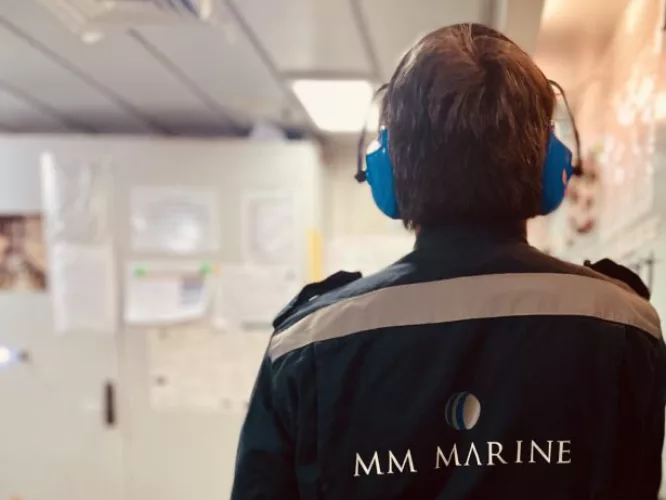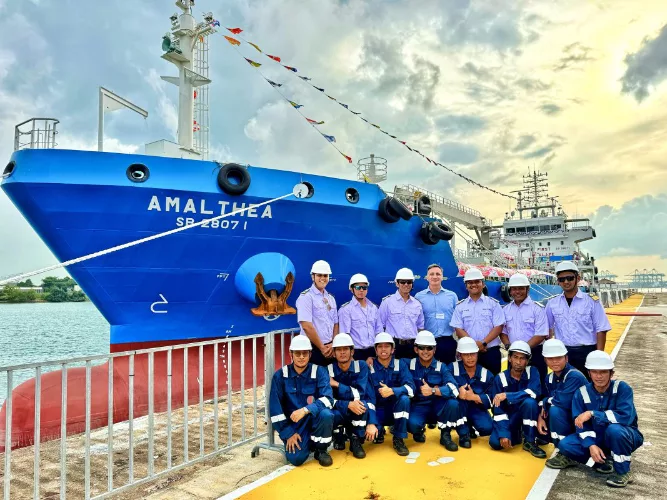Planet
Waste reduction
At Mercuria, we are committed in our efforts to decrease our environmental footprint. While preventing waste creation is our end goal, we recognize the importance of responsible recycling when elimination is not possible. With this dual focus, we target three primary areas to help minimize waste:
- Office Transformation:
- Single-use containers are being phased out, with effective recycling implemented for unavoidable cases.
- Information management is steadily shifting towards electronic formats, reducing reliance on paper documents.
- Enhanced business security via blockchain technology supports minimizing paper waste while enhancing document integrity.

2. Operational Optimization:
- Ongoing reviews at our manufacturing assets identify and implement waste reduction measures.
- Secondary materials generated through operations are diverted from landfill and directed towards suitable markets.
- New businesses integrate material recovery and reuse into their core mission, fostering circular supply chains.
3. Active exploration of various frontiers in waste reduction, including:
- Collaborations with industry partners to identify and implement best practices across the value chain.
- Investment in innovative technologies to support and adopt solutions that promote resource efficiency and circularity.
- Continuous knowledge sharing by building internal awareness and promoting responsible waste management behaviour among our employees.
Driven by these comprehensive efforts, Mercuria is focused on the following goal: to minimize our environmental impact, conserve precious resources, and lead the transition to a greener economy. We envision a future where waste is minimized and materials are valued for their full potential, extending their longevity, and reducing our collective burden on the planet. We hope to inspire and empower others to join us in creating a more sustainable future for generations to come.
Global green offices
Mercuria’s commitment to environmental sustainability is reflected in its office policies. We have comprehensive environmental and sustainability policies in each location to minimize its impact on the planet.
All new purchases and office improvements are aligned to these policies, reflecting our commitment to reduce our environmental footprint.

Reusable water bottles provided to all employees and 80% reduction in paper and single-use plastic consumption show some of our ongoing efforts in reducing waste at our offices.
For years, Mercuria has implemented a sophisticated recycling program across its offices. Some locations offer a multi-stage recycling system that sorts and recovers valuable materials like aluminium, steel, glass, plastic bottles, and paper / cardboard. Before entering this process, material and substances that are not suited for recycling such as food waste and plastic bags are removed from the products, ensuring optimal resource recovery.
We are proud to report that all Mercuria offices actively participate in the recycling program. Dedicated containers for office paper, metal cans, and plastic bottles make responsible disposal effortless. All these efforts show that we are reducing our environmental impact on numerous fronts, for a more sustainable future for all.
Recycling at our assets
Mercuria’s Biofuels Brunsbüttel facility stands as a demonstration of industrial recycling, showcasing the immense potential of transforming waste into valuable resources. Though capable of handling diverse feedstocks for biodiesel production, Brunsbüttel has for years operated exclusively around used cooking oil (UCO).
This innovative approach offers a powerful double win. By offering an environmentally smart solution and a commercially attractive proposition, Brunsbüttel chemically converts UCO into a valuable energy commodity.

By diverting used cooking oil from landfills and waterways, Brunsbüttel prevents contamination while simultaneously contributing to cleaner energy production.
Brunsbüttel’s success story embodies Mercuria’s commitment to responsible resource management and circular economy principles. It demonstrates that repurposing waste isn’t just feasible, but can be a driver of environmental and economic progress.
Investments in recycling
Consistent with our focus on environmental responsibility, Mercuria has an investment strategy that specifically targets recycling technologies, spanning both waste-to-energy solutions and metals, particularly critical rare earth elements crucial for the energy transition. By reusing materials destined for landfills, we not only add value to the supply chain but also act as responsible stewards of our planet.
Two notable examples of this vision are our partnerships with N+P Group B.V. in 2021 and Nth Cycle, a US-based start-up.
N+P stands at the forefront of alternative fuel production from waste, revolutionizing the industry by converting non-recyclable paper and plastic waste into substitutes for fossil fuels. This innovative approach not only prevents such waste from ending up in landfills but also transforms it into valuable feedstock for creating alternative fuels.
N+P Partner Profile
By doing so, N+P offers industries the dual benefits of reduced fuel costs and significant reductions in CO2 emissions, reinforcing their leadership in the sustainable energy sector.
Nth Cycle, through its novel electro-extraction technology, breaks down used cell phones, magnets, circuit boards, and electric vehicles into their core components, enabling the critical technology metals within to be recovered. This technology replaces traditional hydrometallurgy and pyrometallurgy methods, which rely on heavy-emitting furnaces or harsh chemicals, with electricity as the sole input. It essentially transforms electronic waste and leftover materials from existing mines into high-quality critical minerals ready for reuse, directly supporting battery manufacturers, critical metals recyclers, miners, refiners, and electronics manufacturers.
Our partnerships with these innovative companies fuel the same excitement as many of our other endeavours supporting the development of commercially viable solutions to global recycling and renewable energy challenges. We firmly believe that these investments contribute significantly to a future where waste becomes a valuable resource, driven by sustainable and responsible practices.
Continue reading
← Greenhouse gas emissions
TCFD reporting →
Reporting areas
Governance
Planet
People
Prosperity




